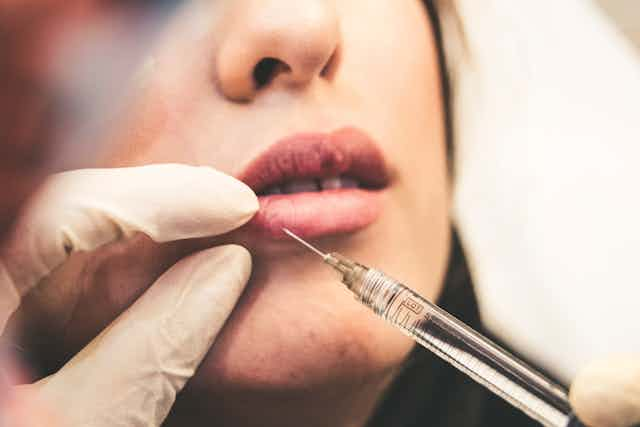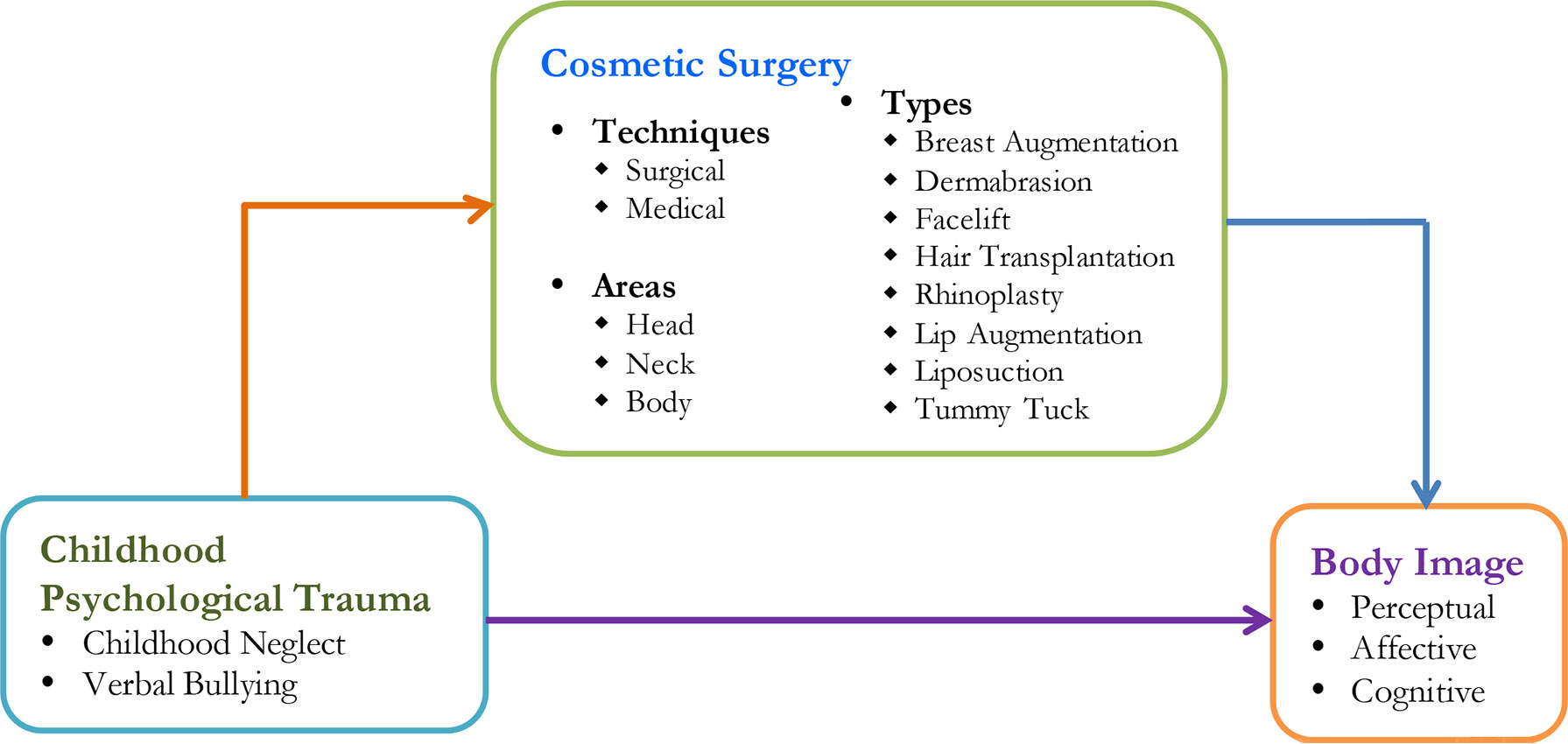Key Benefits of Non-Invasive Surgery Psychological Assessment to Improve Surgical Success
Key Benefits of Non-Invasive Surgery Psychological Assessment to Improve Surgical Success
Blog Article
The Relevance of Mental Checks in Cosmetic Surgical Treatment Decisions
The integration of emotional explore the decision-making process for cosmetic surgical treatment is progressively recognized as crucial for protecting client welfare. These analyses not just help in determining underlying psychological wellness conditions, such as body dysmorphic problem, but likewise help with a much deeper understanding of clients' inspirations and expectations. By promoting open discussion between people and doctors, these examinations can result in even more informed options and improved surgical results. The effects of overlooking mental evaluations might prolong much beyond initial assessments, elevating essential inquiries concerning the long-lasting effect on person satisfaction and mental health and wellness.
Understanding Cosmetic Surgery Inspirations
Understanding the inspirations behind individuals seeking cosmetic surgical treatment is crucial for both patients and specialists. Commonly, these inspirations are complex, encompassing individual, social, and cultural factors. Numerous individuals pursue aesthetic improvements to improve self-worth or body image, driven by a wish to straighten their physical appearance with societal standards or personal ideals.
Social influences, such as the representation of elegance requirements in media and peer contrasts, can likewise dramatically influence a person's choice to undertake aesthetic treatments (cosmetic surgery mental health screening). In addition, life events, such as significant changes or injury, might prompt people to look for medical interventions as a method of recovering control over their appearance and identity
Cultural context plays an essential duty too; different cultures have distinct interpretations of charm and reputation, which can drive individuals toward cosmetic surgical treatment in pursuit of conformity.
Comprehending these motivations is crucial for doctor to make sure that clients are making educated choices and not exclusively reacting to outside pressures. It permits experts to engage in meaningful conversations with patients and evaluate the suitability of surgical interventions, eventually promoting honest methods in the area of plastic surgery.
The Duty of Mental Health
Psychological wellness plays a pivotal duty in the decision-making process for people taking into consideration cosmetic surgical treatment. A detailed understanding of a client's mental state is vital, as it can considerably affect their expectations and inspirations relating to the treatment. People battling with mental health conditions, such as body dysmorphic problem or clinical depression, may have misshaped assumptions of their look and may seek medical treatments as a way of coping instead of resolving underlying emotional concerns.
The interplay between psychological wellness and cosmetic surgery decisions highlights the requirement of comprehensive psychological assessments before any type of surgical treatment. These assessments can aid identify any type of possible threats connected with the client's frame of mind, allowing health care professionals to direct people in the direction of better therapy choices if essential. A solid structure of psychological health can promote healthier attitudes in the direction of body photo and self-respect, adding to more satisfying results post-surgery.
Additionally, individuals with an audio psychological health background are a lot more most likely to have realistic expectations and a favorable post-operative modification. Consequently, incorporating mental look into the cosmetic surgical procedure process not only protects the wellness of the client but additionally improves the overall efficiency of the surgical end results.
Evaluating Emotional Readiness
Examining a client's psychological preparedness is a crucial component in the decision-making process for plastic surgery. Clients need to possess a stable emotional foundation to ensure they can browse the obstacles associated with surgical interventions. This includes recognizing their inspirations for surgical procedure, which need to ideally originate from individual desires as opposed to societal assumptions or external stress.
Assessing emotional readiness includes an extensive evaluation of the client's psychological wellness background, current mood, and coping mechanisms. Surgeons and psychological health experts need to participate in open discussions with clients to discover any kind of underlying emotional problems that may affect their decision. People with a history of clinical depression, body, or stress and anxiety dysmorphic problem might need additional assistance and assessment before proceeding with surgical treatment.
Additionally, psychological preparedness includes the patient's capability to manage the stress of pre-operative preparation, the medical experience itself, and the post-operative recuperation duration. An extensive assessment can aid identify individuals that may gain from counseling or healing treatments prior to undertaking cosmetic treatments. Eventually, making certain psychological preparedness is important to promoting a positive surgical experience and enhancing general patient satisfaction with the end results.
Realistic Expectations and End Results
Individuals' expectations play a vital function in the plastic surgery trip, as having find out practical overviews considerably influences general complete satisfaction with the medical results. When individuals approach cosmetic treatments with attainable and clear goals, they are much better furnished to recognize the limitations of surgery and the possibility for variance in results.
Unrealistic expectations can lead to frustration, dissatisfaction, and even emotional distress post-surgery. It is vital for people to engage in comprehensive discussions with their doctors regarding the expected results, recovery process, and any prospective threats entailed. This discussion permits a more enlightened decision-making process and cultivates a shared understanding of what can be reasonably achieved.
Surgeons have an obligation to evaluate and straighten their clients' expectations with the truths of the procedures. By supplying in-depth info and aesthetic aids, practitioners can aid individuals picture the most likely outcomes, consequently alleviating the danger of dissatisfaction. Inevitably, establishing realistic expectations not only improves patient contentment but likewise adds to an extra positive overall experience, reinforcing the relevance of emotional checks in the decision-making process for cosmetic surgery.
Long-term Advantages of Emotional Checks

One significant long-term advantage is the improvement of person contentment. Individuals this contact form who undergo mental evaluations are extra likely to have sensible expectations and a clearer understanding of their motivations, leading to improved fulfillment with medical end results. Additionally, emotional checks aid in identifying people in danger for postoperative complications, such as body dysmorphic disorder, consequently helping with very early treatment and assistance.

Final Thought
Integrating mental explore cosmetic surgical procedure decisions is essential for promoting client well-being and complete satisfaction. These assessments help with the identification of underlying mental health and wellness issues, guaranteeing that candidates possess psychological preparedness and keep realistic assumptions. By cultivating effective communication in between patients and professionals, mental assessments add to enhanced surgical results and reduced postoperative difficulties. Ultimately, the integration of mental health and wellness factors to consider right into the plastic surgery procedure sustains healthier self-confidence and enhances general patient coping strategies.
The assimilation of emotional checks right into the decision-making procedure for cosmetic surgery is significantly identified as essential for safeguarding individual welfare. Inevitably, setting sensible assumptions not only improves person satisfaction however additionally contributes to a more positive total experience, enhancing the significance of emotional checks in the decision-making procedure for cosmetic surgical procedure.
Eventually, the combination of psychological checks into image source the cosmetic surgical procedure procedure grows an extra alternative approach to client treatment, making certain that emotional health and wellness is focused on alongside physical makeovers.
Including mental checks right into cosmetic surgery choices is necessary for advertising patient health and complete satisfaction. non-invasive surgery psychological assessment. Eventually, the combination of psychological health considerations into the cosmetic surgical procedure process supports much healthier self-esteem and boosts general patient coping strategies
Report this page